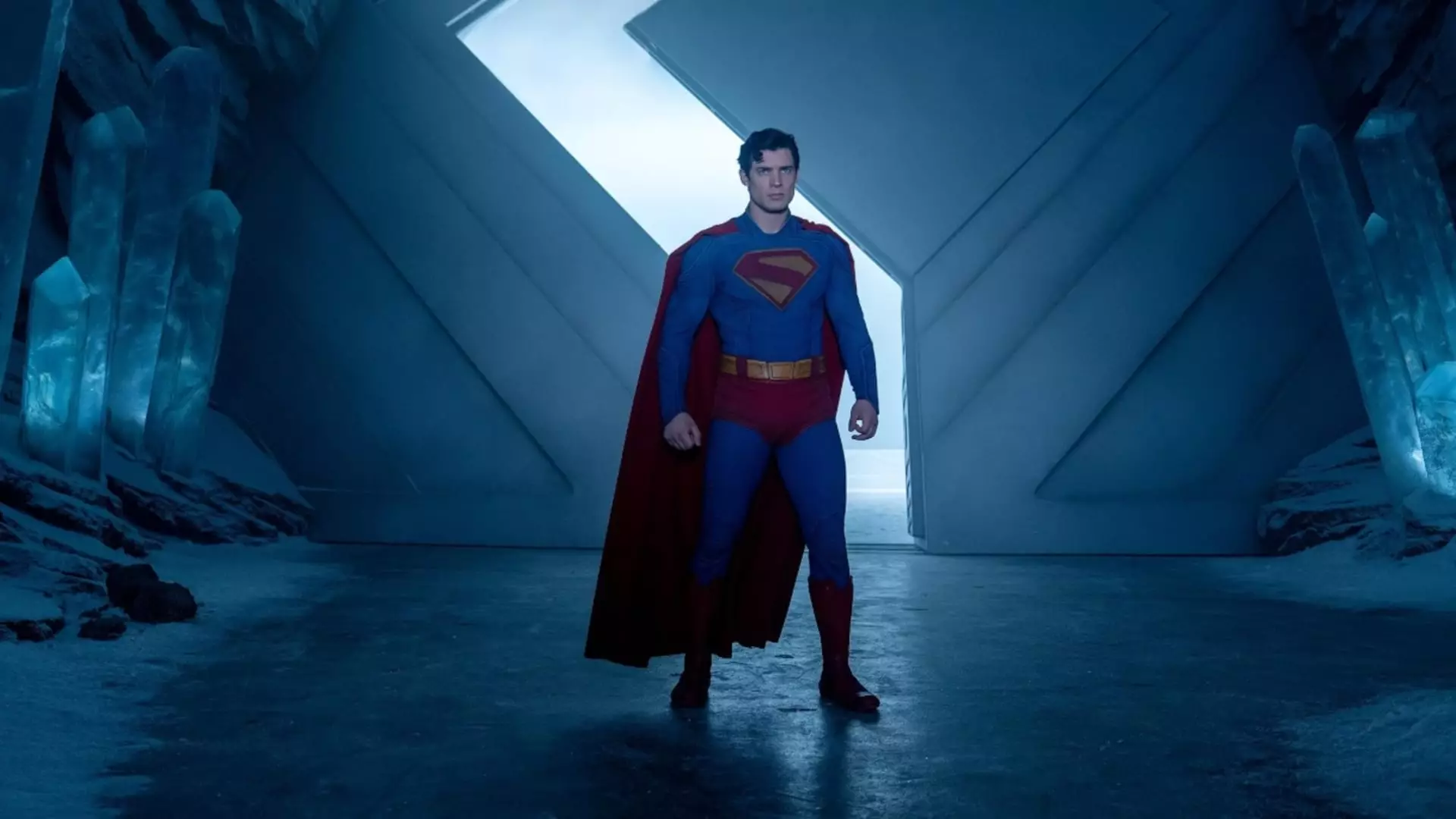In the tumultuous landscape of superhero cinema, Warner Bros.’ latest attempt to reinvent Superman emerges as a pivotal moment—brimming with both optimism and inherent risk. The film’s strong previews, shattering previous records for Superman, bare the industry’s relentless quest for box office dominance but also reveal a fragile trust from audiences weary of recycled narratives. As much as this weekend’s projections suggest a promising start, one must scrutinize the broader implications of placing so many hopes on a legendary character who, despite his cultural significance, has struggled to meet contemporary audience expectations consistently.
The film’s debut, with a $22.5 million haul in previews, signals a notable resurgence for Superman at the box office. However, comparing it to the blockbuster performances of “The Dark Knight Rises” and “Batman v. Superman” underscores the high stakes involved. These earlier entries set a crushing precedent—raising the bar so high that any misstep risks alienating core fans and casual viewers alike. The question then becomes: can a reboot breathe new life into Superman, or is it merely a gamble that relies on nostalgia rather than innovation?
Warner Bros. seems to be betting on the charisma of James Gunn and Peter Safran, two figures celebrated for revitalizing Marvel and DC properties respectively. Their attempt to craft a comprehensive, long-term plan for DC—spanning a decade—embodies a boldness that is commendable yet fraught with peril. The lack of consistency in superhero storytelling often results in audience fatigue, and while critics currently favor the film, critical acclaim doesn’t always translate into sustained box office success. The risk, therefore, is not merely in this weekend’s numbers but in whether audiences will continue to embrace a Superman that perhaps feels tailored more to corporate expectations than authentic storytelling.
The Cultural Stakes and Audience Expectations
Superman has always been more than a character; he’s an emblem of hope, moral clarity, and American mythos. Yet, in an era increasingly defined by nuanced, complex identities and moral ambiguity, the archetypal superhero risks feeling out of touch. Gunn and Safran’s approach leans toward refreshing the franchise, perhaps aiming for a version of Superman rooted in hopefulness. This can be a double-edged sword, especially when critics—who currently laud the film—would be wise to remember that critical approval does not necessarily ensure audience loyalty.
The broader challenge facing the film industry today is cultivating authentic connections in a saturated market. Family-friendly, visually spectacular movies are a staple, but viewers are demanding more substance. Superman’s character must evolve beyond idealism to resonate with modern societal dilemmas, or risk becoming a relic—an outdated symbol rather than a relevant hero. The film’s apparent emphasis on hope and rebirth is admirable, but whether it will be enough to sustain brisk box office numbers through summer months remains uncertain. Audience trust, after years of franchise fatigue, must be earned through genuine storytelling, not just flashy spectacle.
Furthermore, the strategic move to prioritize premium screens and focus on nostalgia-laden marketing tactics signals a reliance on history rather than innovation. Can this approach foster lasting interest, or will it simply serve as a temporary boost? The comparison to other franchise failures or successes should serve as a cautionary tale: momentum in the box office can be fleeting if the core narrative does not genuinely connect on emotional or cultural levels.
The fact that critics are somewhat optimistic is encouraging, but it paints only part of the picture. For a franchise and character as iconic as Superman, longevity depends on more than initial reviews or box office figures. It demands a delicate balance—updating the mythos for modern times while honoring the character’s timeless appeal. That delicate dance requires careful storytelling, authentic character development, and a nuanced understanding of what audiences need today.
In the end, the true measure of success for this reboot will not be confined to opening weekend or the first few weeks post-release. It will depend on whether Warner Bros. and its creative team can sustain interest, spark genuine passion, and reinvigorate the superhero genre with a version of Superman that speaks to contemporary values without diluting what makes the character so enduring. That is the real challenge—and perhaps the most significant test of Gunn and Safran’s ambitious vision.

Leave a Reply